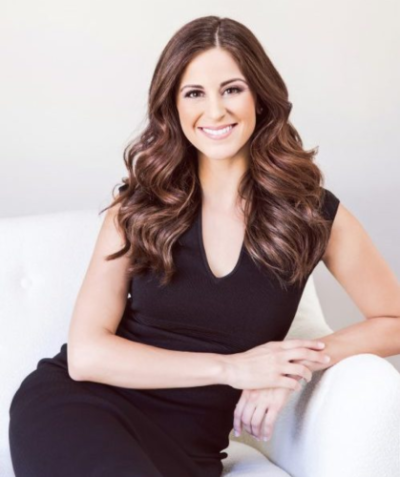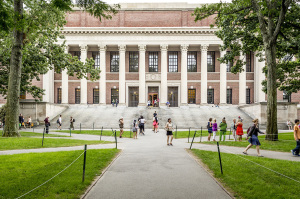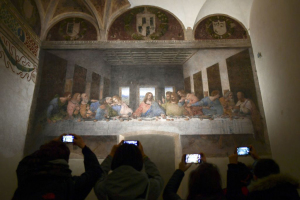How to find your cause and become a force for change in a wounded world

There are many causes that need our attention and that are worthy of our concern, but the greatest need in our era is ultimately spiritual. “Jesus is thirsting for our love,” said Mother Teresa, “and this is the thirst of everyone, poor and rich alike.”
Before fully committing to a cause, I had to ask myself — we all should — where is the need the greatest? Who most needs the advocacy but has the least support? Where is the suffering the most profound, both physically and spiritually? And what immediate difference could I make?
In choosing a cause, we have to be wary of those causes that may appear attractive, but which can be ultimately destructive. A cause can be well-intentioned but become destructive when it is based on an incomplete or incorrect understanding of the human person.
A false cause that has led to great evil over the last century is eugenics, the belief that we can improve the human condition by controlling who gets to have children. This movement rejects the dignity of human beings, viewing the sick, the poor, those deemed “racially inferior,” and the disabled as unfit members of the population whose very existence should be prevented. In the United States, this movement reached its peak of acceptability in 1927. In the now-infamous case Buck v. Bell, the US Supreme Court decreed that Carrie Buck, a white woman from Virginia, was mentally defective and thus could be forcefully sterilized. By court decree and against her will, doctors forcibly operated on her, tying her fallopian tubes so she would not be able to bear children.
“It is better for all the world,” wrote famed liberal Supreme Court Justice Oliver Wendell Holmes, Jr., “if instead of waiting to execute degenerate offspring for crime, or to let them starve for their imbecility, society can prevent those who are manifestly unfit from continuing their kind.” Today, many use similar reasoning to argue for abortion: it’s better for a poor or disadvantaged woman to choose abortion so that her child won’t grow up poor or disadvantaged.
Planned Parenthood founder Margaret Sanger approved wholeheartedly of this philosophy. Her goal, after all, was to “grasp Utopia from the skies and plant it on earth.” In her rejection of God, however, Sanger was forever improvising what form her utopia should take. Whatever form it took, her utopia would have no place for the “mentally defective,” which, in her writings, included the poor, the disabled, essentially all African Americans, and most other people of color. She argued that preventing “defectives” from being born was the height of compassion. Eugenics remained hugely popular in the Western world until Adolph Hitler put its principles into action and people saw only too clearly where they led.
Sadly, many people today still hold eugenic ideas without even realizing it. For example, children with disabilities are routinely killed before birth because they are deemed unfit. Using the same justification as many eugenicists of the past, proponents of aborting babies with prenatal diagnoses argue that it is more compassionate to kill them than to let them live with their disability or to die naturally of a life-threatening condition. Parents are often encouraged to get prenatal screenings of their children so they can abort a child who has a genetic disorder or physical defects. In the United States, this has resulted in the selective abortion of an estimated 40 percent of all preborn Down syndrome babies. In Iceland, that figure approaches 100 percent.
I understand the pressure, especially on my generation, by some powerful institutions to join false causes. Many major corporations, media groups, tech companies, and much of our education establishments promote the legalized killing of children in the womb as a crucial “cause” for women. It’s why doing our homework is just as important as opening our hearts.
If you know what breaks your heart, if you discover who your heroes are, if you are confident in what you believe, and if you have examined the facts to avoid going down a misguided path, you will be well-positioned to find your cause. Your existence at this particular time in human history is no accident. The gifts and talents you have are not random. Although the work we do and the talents we have may not initially appear to be a perfect match to the myriad needs and problems of the world, applying our gifts in service to others is part of what we have been made for. Aligning our talents to address the needs around us is a struggle that refines and strengthens us. It helps us grow into the men and women God created us to be. To refuse to struggle, to refuse to try, is to refuse to grow.
My cause was to fight for life. Abortion was an injustice I could do something about. I could educate my peers. I could raise money for pregnancy resource centers. I could be a silent witness outside abortion facilities. Nothing held me back from helping at least one young woman who struggled with an abortion decision. Nothing held me back from trying to save at least one life. How many other causes allow an ordinary individual to directly help save a life?
When we open our eyes to the greatest evils of our day, we become alert to the suffering and injustice they inflict. There, we will find many causes waiting to be championed by those willing to fight.
Adapted from Fighting for Life: Becoming a Force for Change in a Wounded World. Copyright © 2021 by Lila Rose. Published by Thomas Nelson. Available May 4 wherever books are sold.
Lila Rose is the Founder and President of Live Action, a national pro-life nonprofit organization dedicated to ending abortion. Follow her on Twitter.




























